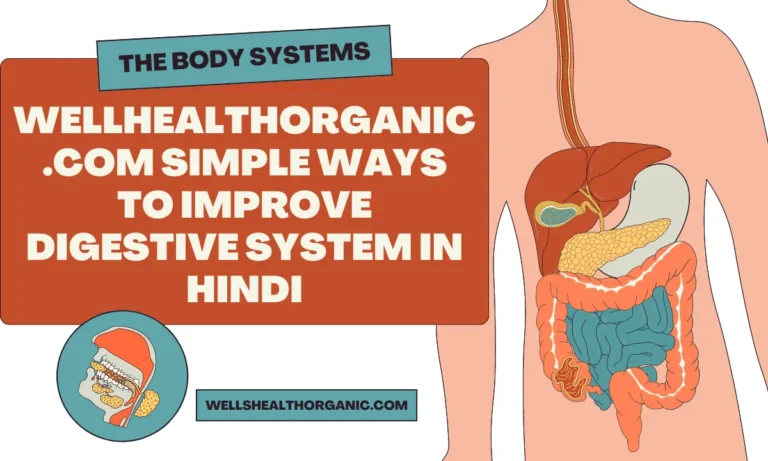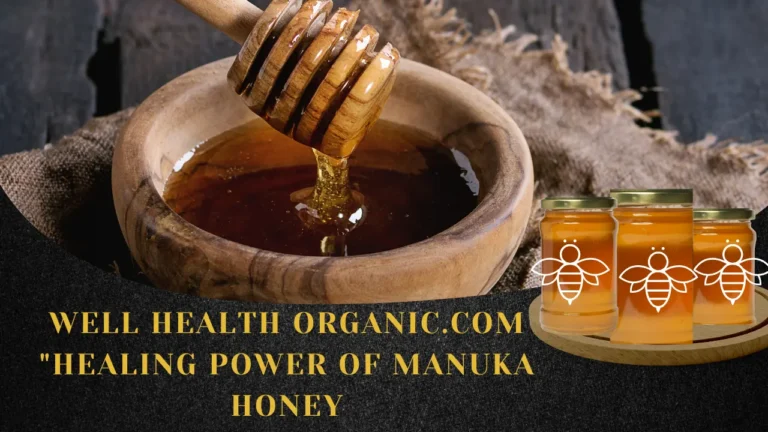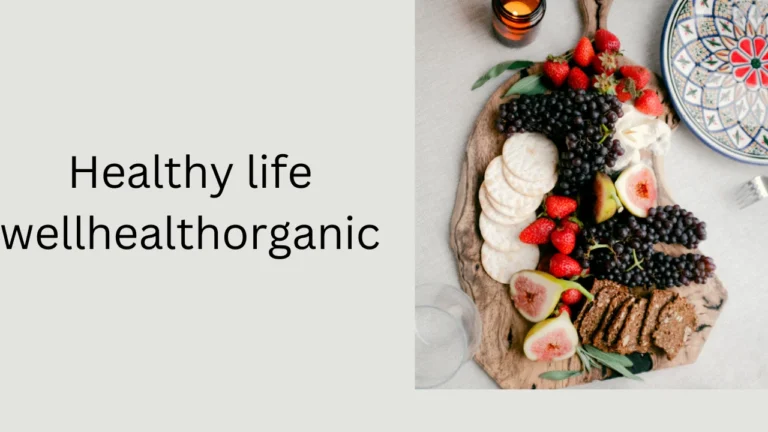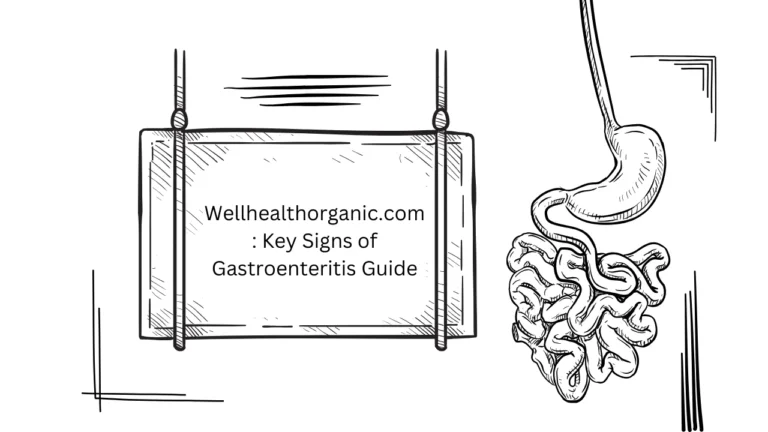Wellhealthorganic.com : Rich Protein Food for Vegetarians
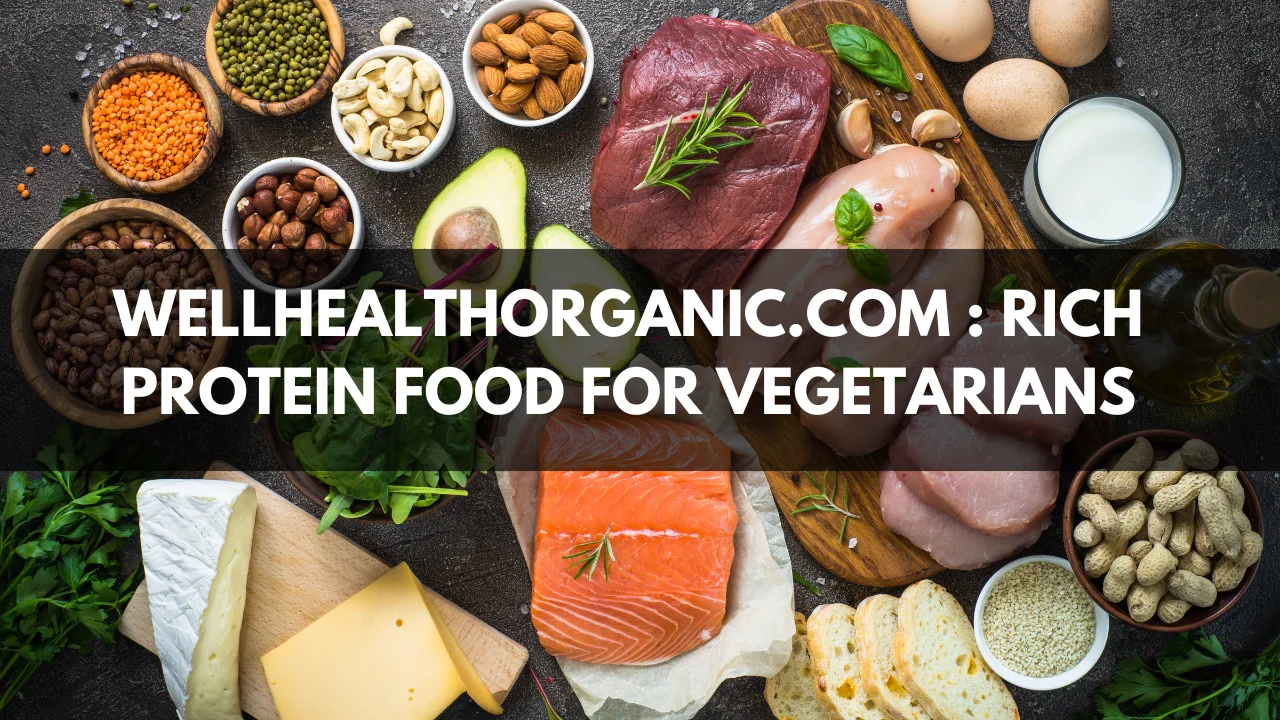
For many vegetarians, meeting daily protein requirements can seem challenging, especially when options like meat and fish are off the menu. However, there are many plant-based foods that are high in protein, providing a viable alternative to animal products. Protein is essential for muscle growth, cellular repair, and maintaining healthy skin and hair, and vegetarians have plenty of sources to meet these needs. In this guide, wellhealthorganic.com provides insights on the wellhealthorganic.com : Rich Protein Food for Vegetarians, helping to create balanced meals and ensuring sufficient protein intake.
Importance of Protein in a Vegetarian Diet
Protein plays a vital role in the body by supporting muscle strength, energy levels, and immune health. For vegetarians, it’s important to plan meals carefully to ensure they’re consuming enough protein-rich foods. This ensures they receive all the essential amino acids needed for proper growth and maintenance. While animal proteins provide complete amino acids, plant-based sources need to be combined throughout the day to provide a balanced profile. wellhealthorganic.com : rich protein food for vegetarians emphasizes the importance of including these foods in your diet to maintain optimum health.
Top Sources of Vegetarian Protein
Beans, Lentils, and Chickpeas
Beans, lentils, and chickpeas are among the most affordable and accessible sources of protein for vegetarians. For example, lentils provide approximately 18 grams of protein per cooked cup. These legumes are also high in fiber, aiding in digestion and helping to maintain stable blood sugar levels. Black beans and chickpeas are versatile and can be added to salads, soups, or even veggie burgers, making them an excellent option for meeting daily protein requirements.
Tofu, Tempeh, and Edamame
Soy is a complete protein, providing all nine essential amino acids needed for the body. Tofu and tempeh are popular among vegetarians for their adaptability and high protein content, with tofu offering approximately 10 grams of protein per 100 grams. Edamame, or young soybeans, is also high in protein and can be enjoyed as a snack or side dish. wellhealthorganic.com : rich protein food for vegetarians highlights soy products as a cornerstone for those seeking plant-based protein sources, especially in Asian cuisine.
The Superfood Grain
Quinoa is often referred to as a superfood due to its nutrient density and protein content. One cup of cooked quinoa provides about 8 grams of protein and all essential amino acids, making it a complete protein. This ancient grain is gluten-free and can be used in salads, stews, or as a rice substitute. The amino acid profile of quinoa makes it ideal for vegetarians who need to include a variety of proteins in their diet, especially when combined with other grains or legumes.
Almonds, Chia Seeds, and Hemp Seeds
Nuts and seeds are high in protein and essential fatty acids, supporting heart health and brain function. Almonds, peanuts, chia seeds, and hemp seeds provide a decent protein amount and can easily be added to smoothies, salads, or oatmeal. For example, an ounce of chia seeds offers 4.7 grams of protein, while hemp seeds deliver a complete protein profile. Rich protein food for vegetarians recommends including these foods regularly to boost protein intake and benefit from healthy fats and antioxidants.
Also Read: Beauty Glazed Eyeshadow Palette: Known For Its Beauty Mystery
| Food Item | Protein (per 100 grams) | Additional Nutrients |
|---|---|---|
| Tofu | 10.7 grams | Iron, calcium |
| Lentils | 9 grams | Fiber, folate |
| Quinoa | 8 grams | Magnesium, phosphorus |
| Almonds | 21 grams | Healthy fats, vitamin E |
| Chia Seeds | 17 grams | Omega-3 fatty acids, fiber |
| Hemp Seeds | 31 grams | Omega-3, magnesium |
Dairy Products for Lacto Vegetarians
For those who include dairy in their vegetarian diets, options like Greek yogurt, cottage cheese, and milk offer substantial protein content. Greek yogurt, for instance, provides about 10 grams of protein per 100 grams and can be enjoyed as a snack or breakfast option with added fruits and nuts. Cottage cheese, another protein-packed choice, contains around 11 grams per 100 grams and pairs well with various vegetables. Rich protein food for vegetarians notes that dairy can also serve as a calcium source, benefiting bone health.
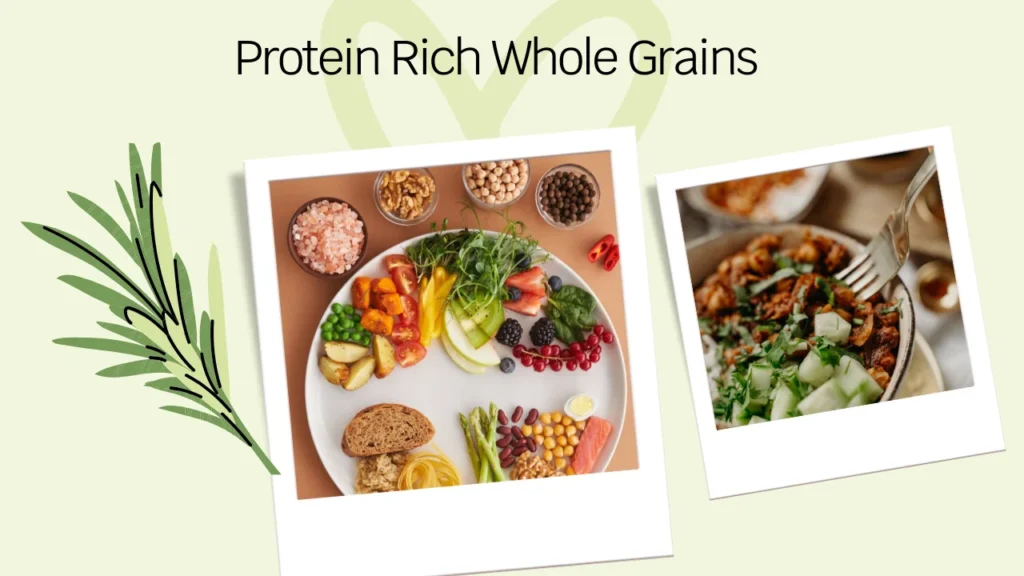
Protein Rich Whole Grains
Whole grains such as buckwheat and amaranth are nutritious and rich in protein. A serving of buckwheat provides around 6 grams of protein, while amaranth offers about 9 grams. These grains are excellent for vegetarians looking to diversify their meals while increasing protein intake. Buckwheat can be used in pancakes, and amaranth can be incorporated into porridge, enhancing the meal’s protein value. Including these grains aligns with wellhealthorganic.com : rich protein food for vegetarians recommendations for a nutrient-diverse diet.
Also Read: XL Health India: A Comprehensive Guide
Vegetables with High Protein Content
While vegetables are not typically known for their protein, certain options like broccoli, spinach, and Brussels sprouts provide a decent amount per serving. For instance, a cup of cooked spinach contains about 5 grams of protein, making it a valuable addition to meals. These vegetables also contain essential vitamins, fiber, and antioxidants, contributing to overall health. Adding these vegetables to meals helps improve nutrient intake while supporting muscle growth and repair, as highlighted by wellhealthorganic.com : rich protein food for vegetarians.
Combining Foods for Complete Protein Profiles
For vegetarians, combining foods like beans with rice or hummus with whole-grain bread creates a complete amino acid profile. This section explains food pairing strategies to ensure all essential amino acids are covered in a vegetarian diet.
Easy Meal Ideas to Increase Protein for Vegetarians
Incorporating simple, protein-rich recipes, this section offers practical meal ideas for vegetarians, such as quinoa salads, lentil stews, and tofu stir-fries. These suggestions help increase protein intake without complicated meal prep.
Also Read: Bestadvise4u.com Health: A Guide to Wellness
Combining Plant Based Proteins
Combining different plant-based proteins throughout the day ensures vegetarians receive a full range of essential amino acids. For example, pairing beans with rice or eating hummus with whole-grain bread creates a complete protein profile. wellhealthorganic.com : rich protein food for vegetarians suggests adopting these simple food pairings to make sure vegetarians get all the nutrients they need.
Practical Tips for Increasing Protein Intake
To reach optimal protein levels, vegetarians can follow a few practical tips. Start your day with a protein-rich breakfast like Greek yogurt with almonds, or quinoa porridge. Add beans or chickpeas to your lunch salads or wraps, and snack on protein-packed nuts or seeds. These small changes can significantly enhance protein intake without drastic diet adjustments. For dinner, consider using tofu or tempeh in a stir-fry or adding a portion of lentils to your meal.
Why wellhealthorganic.com Recommends Protein Variety
wellhealthorganic.com emphasizes the importance of a variety of protein sources in a vegetarian diet to cover essential amino acids and provide diverse nutrients. This section explains how varying your protein intake supports overall health.
Also Read: Wellhealthorganic Vitamin B12: A Comprehensive Guide
Final Thoughts on Vegetarian Protein Sources
Summarizing the main points, this section highlights the best vegetarian protein sources and the importance of a balanced diet. It encourages readers to explore various plant-based proteins to meet their dietary needs and stay healthy.
Each section reinforces the importance of incorporating a mix of protein-rich foods in vegetarian diets, as well as practical strategies to help vegetarians meet their nutritional needs naturally.
Conclusion
Eating a vegetarian diet does not mean sacrificing protein intake. With careful planning and a diverse range of foods, vegetarians can enjoy all the health benefits of protein without animal products. By incorporating legumes, soy products, nuts, seeds, and protein-rich grains, vegetarians can easily meet their protein needs. Following wellhealthorganic.com : rich protein food for vegetarians offers valuable insights into nutritious options and practical meal ideas to maintain a balanced and protein-packed vegetarian diet.
Also Read Wellhealthorganic.com : Health Care and Fitness Tips in Hindi

